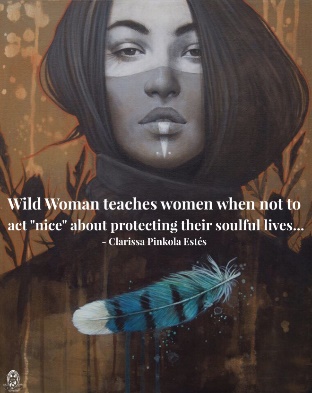A study course of the book “Women Who Run With The Wolves.”
Facilitated by Dee Petit
Many women know that something’s missing and sense a call toward a larger, a more fertile life but they don’t know what to do. Join us in exploring and reclaiming our creative intuitive nature as we sit in circle together and explore stories and myths on how to regain our divine feminine birthright and empower the wild woman within that is longing to thrive.
Continue reading “Call of the Wild Woman”

